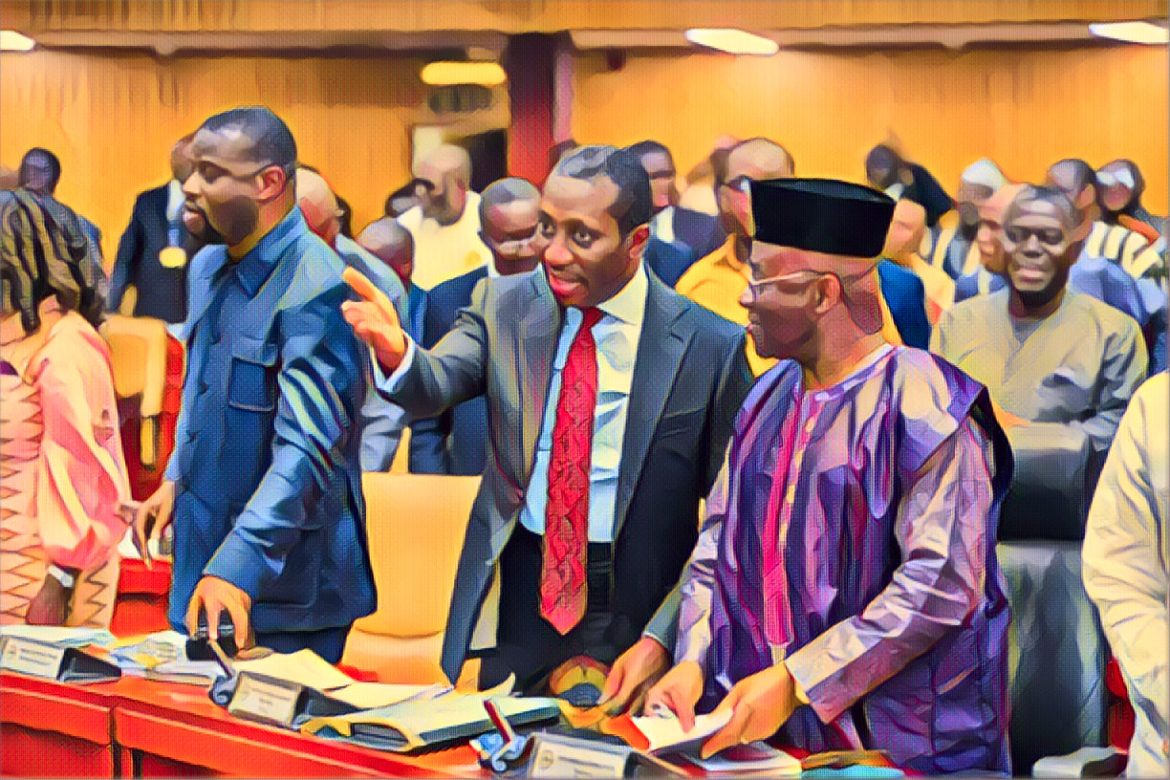In a dramatic turn of events that has sent ripples through Ghana’s political landscape, Dr. Rasheed Draman, Executive Director of the African Center for Parliamentary Affairs, has labeled recent maneuvers to alter the Majority leadership in Parliament as nothing short of a ‘failed coup’. During a candid discussion on JoyNews’ PM Express on the evening of February 20th, 2024, Draman shed light on the internal turbulence rocking the New Patriotic Party (NPP) caucus.
The crux of this political drama centers around an ambitious, albeit unsuccessful, effort by certain factions within the NPP, in collusion with party heavyweights, to dethrone the incumbent Majority Leader, Osei Kyei-Mensah-Bonsu. The plot aimed to elevate Alexander Kwamina Afenyo-Markin, the Deputy Majority Leader, to the forefront of parliamentary leadership.
This bold move, however, faltered almost as quickly as it emerged, meeting resistance from the broader parliamentary membership who seemed largely disinclined to support the proposed leadership reshuffle.
Drawing parallels with the National Democratic Congress (NDC)’s recent leadership overhaul, Dr. Draman hinted at the possibility of the NPP’s internal factions taking inspiration from their counterparts. Yet, the stark difference in approach – a singular change at the NPP helm versus the NDC’s sweeping leadership revamp – has sparked debate and speculation about potential rifts within the NPP’s ranks.
“Is there a division within the caucus? Is there one camp backing the Deputy Majority Leader and another in the corner of the Majority Leader?” Dr. Draman posed, highlighting the undercurrents of discord that this incident has unearthed.
Expressing his dismay over the developments, Dr. Draman remarked, “For me, when I heard about all this, I said this is a failed coup and it speaks to the fact that an institution that is supposed to be the beacon of our democracy is, in itself, not adhering to the very principles of democracy.”
The whispers of Osei Kyei-Mensah-Bonsu’s potential ouster have been circulating for some time, reaching a crescendo at the party’s National Council and National Executive Committee meeting. Despite the issue being on the agenda, the meeting concluded without any definitive action, leaving the matter hanging in the balance.
This incident has not only stirred discussions about unity and harmony within the Majority caucus but also raised questions about the party’s stability and direction as Ghana inches closer to the 2024 elections.
As the dust settles on this episode, the spotlight now turns to the NPP’s leadership, tasked with navigating the party through this tumultuous period and mending any rifts that have been exposed. With the nation watching, the outcome of this internal strife could very well shape the political landscape in the run-up to the next electoral cycle.
In a political arena where unity and cohesion are paramount, this ‘failed coup’ serves as a stark reminder of the challenges facing party politics and governance in Ghana. It underscores the need for dialogue, compromise, and a renewed commitment to the democratic values that underpin the nation’s parliamentary system.




